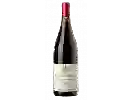
Winery Moc-BarilChinon
This wine generally goes well with
Details and technical informations about Winery Moc-Baril's Chinon.
Discover the grape variety: Cabernet-Mitos
An intraspecific cross between Cabernet Sauvignon and Dyer du Cher obtained in 1970 in Weinsberg, Germany. It can be found in Germany, Switzerland, etc. and is virtually unknown in France.
Informations about the Winery Moc-Baril
The Winery Moc-Baril is one of of the world's greatest estates. It offers 11 wines for sale in the of Chinon to come and discover on site or to buy online.
The wine region of Chinon
The wine region of Chinon is located in the region of Touraine of Loire Valley of France. Wineries and vineyards like the Domaine Marc Brédif or the Château de Saint Louans produce mainly wines red, white and pink. The most planted grape varieties in the region of Chinon are Cabernet franc, Chenin blanc and Cabernet-Sauvignon, they are then used in wines in blends or as a single variety. On the nose of Chinon often reveals types of flavors of cherry, eucalyptus or orange and sometimes also flavors of cola, fig or game.
The wine region of Loire Valley
The Loire Valley is a key wine region in western France. It follows the course of the Loire River on its Long journey through the heart of France, from the inland hills of the Auvergne to the plains of the French Atlantic coast near Nantes (Muscadet country). Important in terms of quantity and quality, the region produces large quantities (about 4 million h/l each year) of everyday wines, as well as some of France's greatest wines. Diversity is another of the region's major assets; the styles of wine produced here range from the light, tangy Muscadet to the Sweet, honeyed Bonnezeaux, the Sparkling whites of Vouvray and the juicy, Tannic reds of Chinon and Saumur.
The word of the wine: Balance
Harmony of the different organoleptic elements of a wine. The balance is linked to the typicity of each wine. The sweetness of a sweet wine is an element of its balance, whereas a Sancerre or a Chablis will be asked to be lively and dry.














